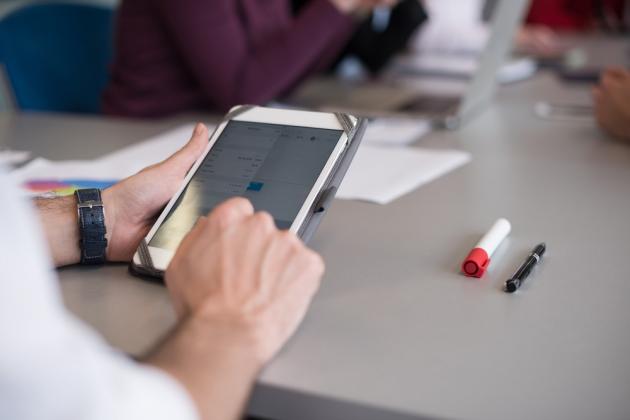The Ministry of Health and Welfare said its pilot mobile healthcare program drew satisfaction from users, helping them lose weight and reduce cholesterol levels.
Launched in September last year at public health centers across the nation, the mobile program offers customized healthcare consultations with the help of the public health centers’ physicians, nurses, nutritionists, and fitness experts. Ten public health centers participated in the first project year from September 2016 to March 2017. Another 35 joined in the program in the second project year from May 2017.

According to the ministry’s evaluation report on the pilot program’s effectiveness, participants of the mobile healthcare program showed high satisfaction. The report analyzed documents from the program and carried out in-depth interviews with 40 participants, 25 program users and 15 program providers, at 10 public health centers.
Obese people were the largest group among the users of the mobile healthcare program, followed by those at risk of hypertension and arthritis. The most significant change in their health was weight loss. Their levels of cholesterol and blood pressure came down to normal levels, and fatigue also abated.
The mobile healthcare program was most helpful in reducing obesity. It also worked for lowering the risk of high blood pressure and diabetes. However, the program had some difficulty in measuring blood pressure and diabetic levels, compared to obesity.
The ministry report said the mobile healthcare program was sometimes inaccurate in measuring the condition of the participants. Some participants experienced measuring errors. Some others lost the equipment because it was unfit to the user’s wrist. The users also complained that the equipment was not waterproof, which makes it easily faulty.
The providers of the program expected that the program’s real-time checking of the user’s health would reduce the incidence rate of dangerous diseases. The providers picked health management without a hospital visit and mobile consultation without a phone call as the success factors of the program.
However, they noted that the program was difficult to use, especially for the elderly, and that the mobile app was not compatible with iPhone. They also said they could not regularly manage the app service for well-educated participants with high-rank occupation because they were on a business trip frequently.

